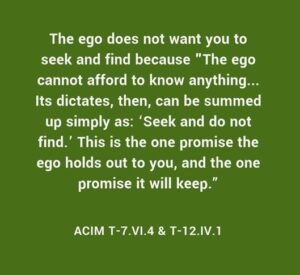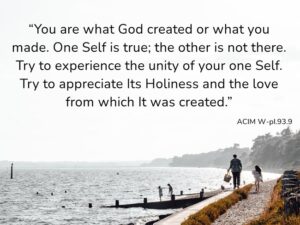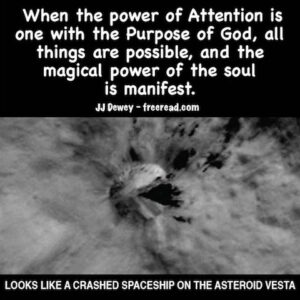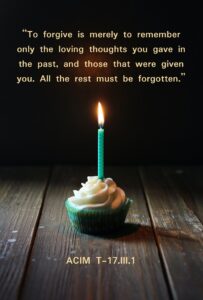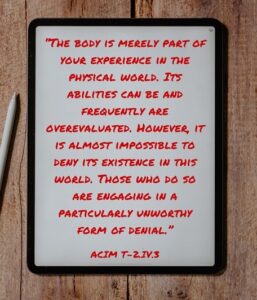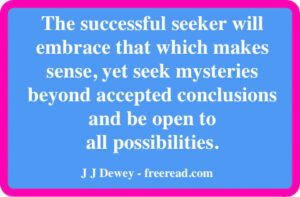
Ethers and Gods
A reader asked for clarification about what kind of bodies are taken by the inhabitants of Shamballa.
One must remember that DK often calls the etheric body the true physical body. He says he calls it such because it is created on a true principle whereas the dense physical is not.
There are seven levels of matter on the physical plane. Three we acknowledge are solid, liquid and gaseous. There are four above the gaseous, which are not normally visible.
In addition the states in the higher planes are often called ethers so when one talks of ethers it can refer to one of many.
Sanat Kumara laid the foundations of Shamballa here 23 million years ago and incarnated as the first self-conscious man in the physical 18 million years ago. Since then he has dwelled in a high-grade physical etheric body. Of this DK writes:
“Sanat Kumara and His Pupils are in physical form, but have not taken dense physical bodies. They work on the vital etheric levels, and dwell in etheric bodies. Shamballa, where They dwell, exists in physical matter as do the Kumaras, but it is matter of the higher ethers of the physical plane, and only when man has developed etheric vision will the mystery lying beyond the Himalayas be revealed.” Treatise on Cosmic Fire, Page 753
We humans have a lower grade etheric body, which interplays with the dense physical and creates our waking consciousness. Technically, you could say that our consciousness is in the wholeness of our dense physical and etheric bodies.
Question: Is the Ancient of Days overshadowing disciples?
The only individual he might be presently overshadowing would be the Christ himself – for he is the mediator between God and man. Sanat Kumara’s body is of a much higher vibration than our etheric vehicles and we could only see his physical form through the dream state or transfiguration where our vibration is altered.
If he desired he could approach a disciple on the mental plane, but this is usually left up to the Masters.
He loosely overshadows all life on the entire planet by merging his consciousness with the Spirit of the earth and can tune into any one point at will. Nothing of importance escapes his attention.
Question: What would be the current situation of the early disciples of Jesus?
These early disciples would definitely be working with the Christ in some capacity today whether in or out of incarnation.
An LDS reader compiled the similarities between some of the more controversial teachings of Joseph Smith ad those of DK. Here is his list:
- Men are Gods, co-eternal with the God of this planet.
- There is a God above the Christ appointed to this earth before it was populated.
- The First man was this God who came from another planet.
- Our God was born as a mortal human and overcame all things in another system far back in time.
- The Christ is an office, but the light of Christ is in each of us.
- Free agency is the battleground of the Light and Dark Brothers.
- All beings, even Satan, or the dark brothers, are brothers of Christ as well as you and I but are on different paths.
- The God of this earth is in the form of a man.
- Christ is currently in a physical body.
- He never had a beginning and will never have an end.
- Revelation continues and has never ceased.
- The Masonic order was inspired, but is corrupted and will be restored to usefulness.
- Man was on the earth before the beginning of Biblical history 6000 years ago.
- The power behind symbols and ritual.
- Both taught eternal progression.
Interesting list. It’s funny that more LDS people are not interested in the Ancient Wisdom.
A reader asked me if we should attack Cuba since I support some wars of liberation.
Where there is an injustice in the world, we must do all in our power to correct it.
Where there is slavery and lack of freedom we must do all in our power to open the prison gates.
Where there is torture, suffering and starvation we must work tirelessly to bring relief.
Each nation, group and individual is limited in what he can do and must assess his situation and work as he can to help.
The United States, or any other country, cannot tackle and solve every injustice in the world, but we should use good judgment and do what we can.
If you are living in comfort and discover that your next-door neighbor beats his kids black and blue regularly and then starves them when they give him a wrong look what would you do?
Would you just sit there and say it is none of your business? Would you wear earplugs at night so you could not hear their screams and remain in ignorant bliss?
I hope not.
We should do all in our power to free the people of Cuba and every other nation where there is oppression. Right now, we are stretched as thin as is prudent as far as military force is concerned, but we should always remain vigilant about assisting other nations in obtaining their freedom, but always using good judgment and at the probable end result. The good guys are the ones who do not make the first aggression.
“And he shall judge among many people, and rebuke strong nations afar off.” Micah 4:3
Rebuke here comes from the Hebrew YAKACH and more literally means to “make right” or “correct.”
The United States has followed this path and corrected strong nations afar off. We have changed Germany, Italy. South Korea and Japan from dictatorships to democracies and now we have the chance to do it with other nations as the opportunity permits. Freedom should be spread as far and as wide as we have strength – and of course this path must be pursued with good judgment.
“Sanity calms, but madness is more interesting.” John Russell
Nov 19, 2004
Copyright by J J Dewey
Easy Access to All the Writings
For Free Book go HERE and other books HERE
JJ’s Amazon page HERE
